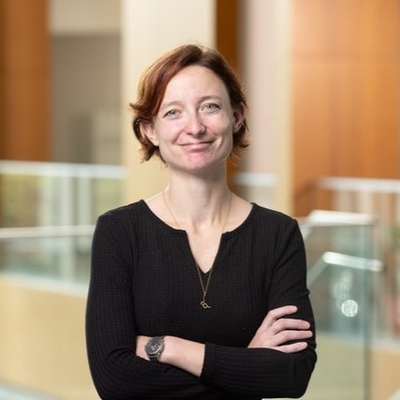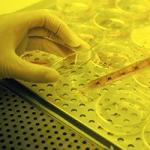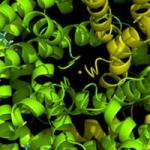
Research Topics
High-throughput fragment-based drug screening
Fragment screening by protein crystallography has been at the heart of medicinal chemistry developments for decades, though until recently it was dominated by industry. With significant improvements in lab and synchrotron hardware, these technologies are becoming slowly available for academic labs. My lab is pioneering these technologies within the National Cancer Institute. Using a robust pipeline for protein crystallization, compound soaking and harvesting, we can screen hundreds of fragments and obtain ligated structures from which pharmacophores can be derived. These are the first steps in a medicinal chemistry campaign, which also provide opportunities for IP generation.
Cancer metabolism
Cancer cells are incredibly resistant to typical apoptotic mechanisms, allowing them to survive and proliferate. Many of these mechanisms are linked to cellular metabolic changes. By targetting upregulated metabolic pathways and proteins in tumors, cancer cells can be sensitized and cancers better erradicated.
Collaborative environment
All of our projects use synergistic approaches, employing organic chemistry and biophysics tools. We collaborate with scientists at X-ray radiation facilities harnessing the most cutting-edge synchrotron hardware available as well as with groups and facilities at NCI to provide translational capabilities for our medicinal chemistry campaigns. We collaborate closely with the Molecular Targets Program and the Medicinal Chemistry Accelerator.
Biography
Diana Monteiro earned her Bachelor’s and Master’s degrees in Medicinal Chemistry from the University of Leeds (U.K.). She was awarded a Wellcome Trust Ph.D. Studentship with the Astbury Center for Structural Biology (School of Cellular and Molecular Biology, University of Leeds), where she pivoted her studies from chemistry to protein crystallography. As a Louise Johnson Fellow with the Center for Ultrafast Imaging at the University of Hamburg (Germany), she expanded further into methods development for room-temperature and time-resolved crystallography, working with both synchrotrons and X-ray free-electron lasers, and developing microfluidics for sample delivery to X-ray beams. In 2019, she joined the Hauptman-Woodward Medical Research Institute in Buffalo, NY, first as a postdoctoral researcher, and then progressing to an assistant investigator position. In Buffalo, she set up and oversaw the operation of an organic chemistry laboratory which worked synergistically with her structural biology research. Now as a Stadtman Investigator with the Center for Structural Biology, Dr. Monteiro's group works at the interface of structural biology and medicinal chemistry, addressing protein crystallography challenges.
Related Scientific Focus Areas



Microbiology and Infectious Diseases
View additional Principal Investigators in Microbiology and Infectious Diseases

Molecular Biology and Biochemistry
View additional Principal Investigators in Molecular Biology and Biochemistry

This page was last updated on Monday, October 6, 2025